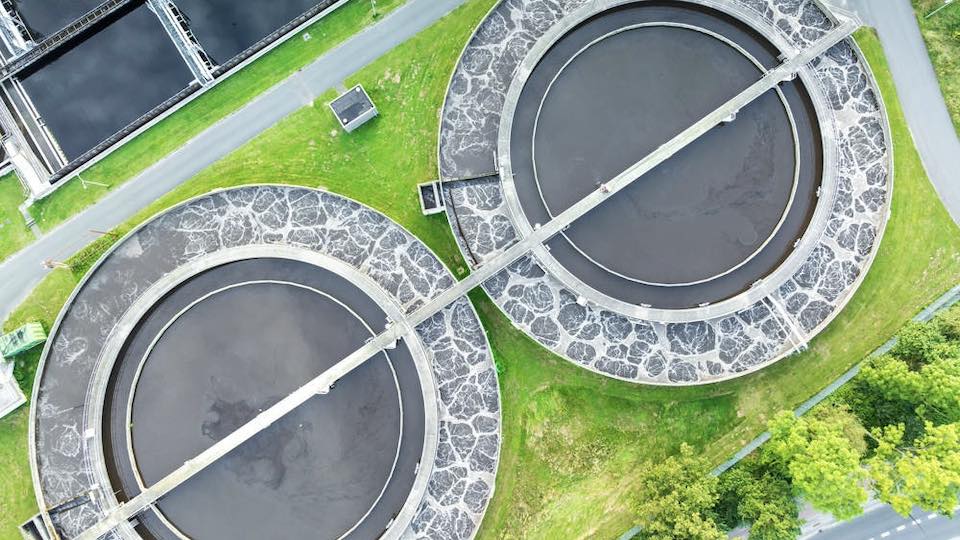EU: Cosmetics and pharmaceutical companies must bear costs for wastewater treatment

Pharmaceutical companies and cosmetics producers will have to bear a significant portion of costs for wastewater treatment in the European Union going forward. Last week the European Council approved a revised urban wastewater treatment directive. Now it must be adopted by national legislatures.
As the Council announced on Monday, producers of medicines and cosmetics are “the main source of micropollutants in urban wastewater.” In the future, these companies must bear at least 80 percent of additional costs for more extensive treatment under an “extended producer responsibility (EPR) scheme.” Producers will also have to cover the costs of “gathering and verifying data on products placed on the market.”
The directive does provide for exceptions to the EPR program – for example, where companies are able to demonstrate that their products “are rapidly biodegradable in wastewater.”
Micropollutants dangerous even in small quantities
As the revised directive states, micropollutants “are now routinely detected in all waters” in the EU. Some of these micropollutants “are hazardous for public health and the environment even in low concentrations” of just a few micrograms per liter or below.
The German environmental advocacy group BUND has also argued that micropollutants pose a threat to animals and plants in rivers, streams and lakes even in low concentrations. These pollutants include residues of medicines or cosmetic products – but also of household chemicals and pesticides.
The organization highlights one example: diclofenac is a “widely promoted” painkiller that is available as a topical ointment and in pill form. When used topically, most of the drug is either washed off in the shower or expelled in urine, and ends up in wastewater. It cannot be removed by most wastewater treatment facilities and ends up in bodies of water, where it causes substantial harm to fish and other organisms. Those who use the drug, however, are largely unaware of this harm – not least because the packaging contains no information on the drug’s environmental impact. Only treatment facilities that are equipped to carry out what is known as quaternary treatment can remove such micropollutants. By 2045, according to the EU’s revised directive, certain urban wastewater treatment plants must be able to conduct quaternary treatment.
The revised directive also calls for wastewater to be closely monitored for antimicrobial-resistant bacteria, viruses and microplastics. EU member states are required to promote the reuse of treated urban wastewater wherever appropriate – “especially in water-stressed areas.”
The first version of the EU directive on wastewater treatment was adopted in 1991. In 2019 the European Commission evaluated the directive and determined that a revision was needed. The Commission submitted its proposal for a revised directive in October 2022.
The European Parliament approved the revised directive in April 2024 – approval by the European Council was the last step in the legislative process. The new regulations will now be published in the Official Journal of the EU and will go into force 20 days after publication. EU member states will then have 31 months to adapt their own laws in accordance with the directive.
Criticism and praise
The new rules have come in for criticism from the pharmaceutical sector. Pro Generika, a trade group, released a statement in response to the directive’s approval: “It is beyond dispute that treatment plants must be built in such a way that trace substances are filtered out of wastewater. What is not understandable is why only two industries are being penalized, even though the contaminants that need removing” also come from other sectors. The group warns of billions in costs.
But environmental and wastewater management groups emphatically welcome the new directive.
Dorothee Saar, head of transport and air quality at Deutsche Umwelthilfe, a German environmental group, said in response to an inquiry from Posteo: “We welcome the pharmaceutical and cosmetics industry’s sharing the costs of wastewater treatment.” Saar warned however: “Nevertheless, these rules must apply to all other producers of pollutants that end up in wastewater, like the fertilizer industry. More important than cost sharing is halting the introduction of harmful substances into wastewater. Non-degradable substances especially, like trifluoroacetic acid (TFA), which to a large extent can no longer be removed, must never be allowed to reach bodies of water in the first place.”
Saar criticized the situation in Germany specifically: “Germany lags far behind when it comes to imposing legal requirements for water quality.” To that end, Deutsche Umwelthilfe has filed lawsuits against the state government of North Rhine-Westphalia seeking effective measures to reduce mercury contamination in the Rhine, and against the state government of Schleswig-Holstein seeking a reduction in water contamination due to TFA and pesticides.
The Bundesverband der Energie- und Wasserwirtschaft (BDEW), a trade group representing the German energy and water management sector, also hailed the new directive. Martin Weyand, chief executive for water and wastewater, said in a statement: “Final approval of the urban wastewater treatment directive is an environmental economic milestone. With it, a binding extended producer responsibility program has finally been introduced in the wastewater management sector. In the future, producers of medicines and cosmetic products will be required to bear the initial and ongoing costs for quaternary treatment.” The “polluter pays principle” will now be legally binding, creating incentives to reduce the release of contaminants at the source and develop environmentally friendly raw materials and products. With the new directive, Weyand said, “there is no longer a license to pollute.” (dpa / js)